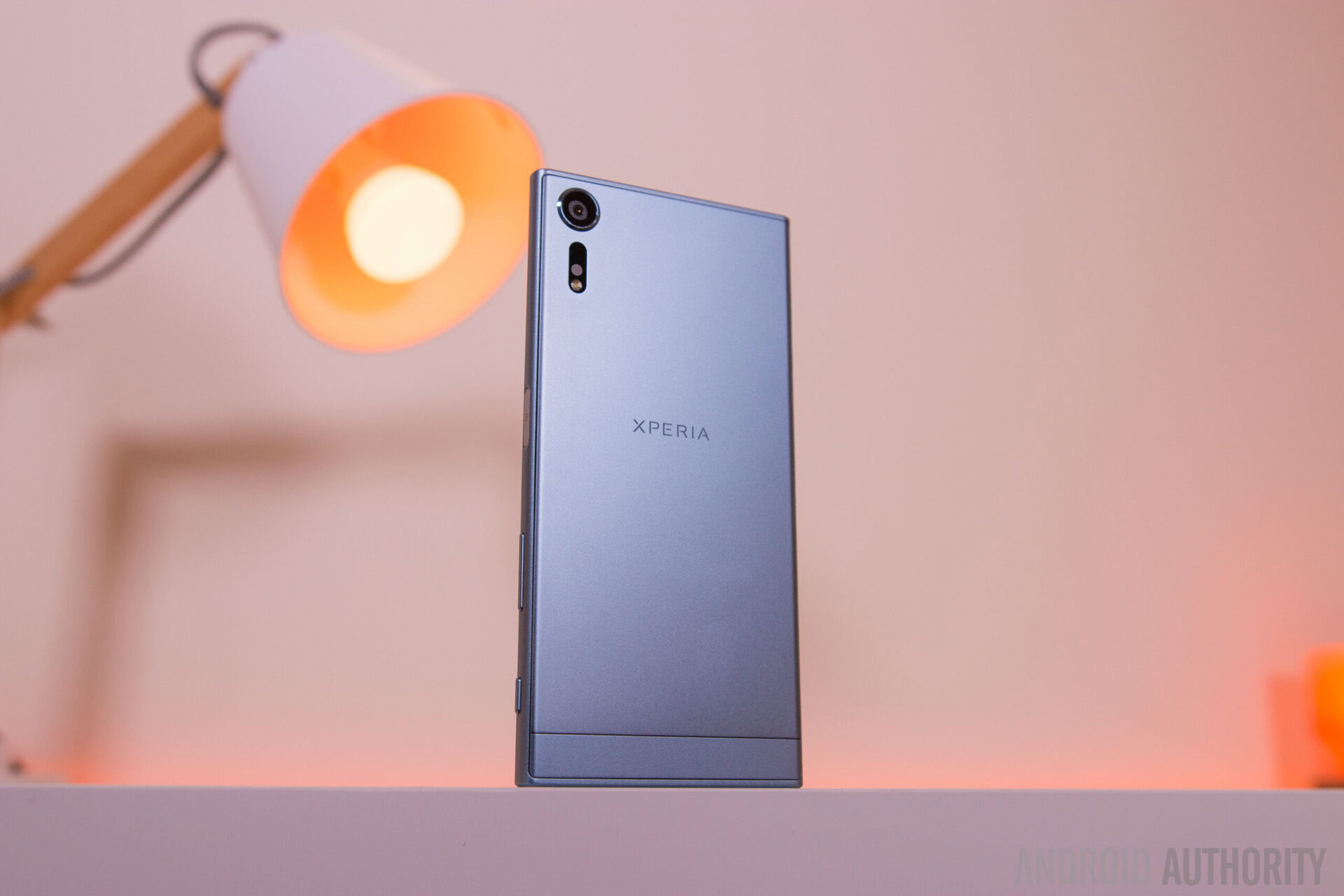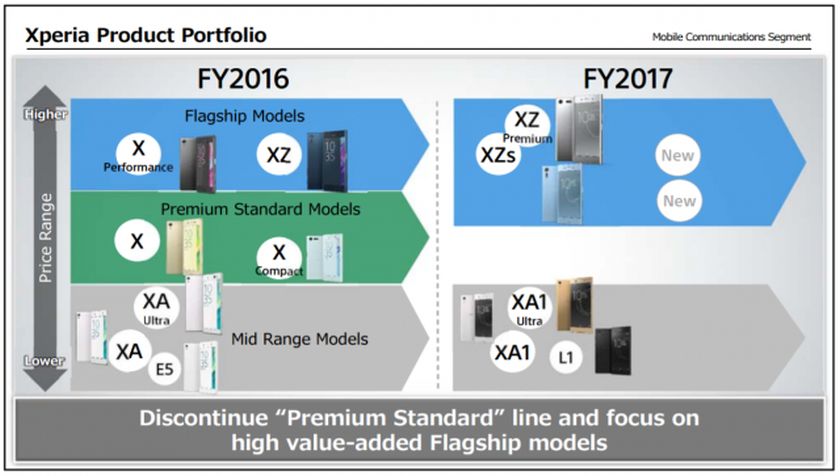Affiliate links on Android Authority may earn us a commission. Learn more.
Sony consolidating its flagships is probably for the best

Despite not performing as well as many of the other big brands in the smartphone business, Sony has made it clear that it will stick it out in the handset market. The latest reports suggest that the company has two more flagship models heading our way this year.
While still unconfirmed, it appears that Sony is looking to consolidate its premium tier of smartphones with its upcoming releases. A move that I believe not only makes financial sense, but is likely to help the company’s struggling brand awareness too. Even if this means that a few consumer favourites, such as the Compact range, may be sacrificed.

Xperia XYZ
Sony has long been criticized for releasing too many smartphones, and this goes right back to the days of the Z1, Z3, and Z3+, etc. Arguably, the situation has become even more confusing in the past year or so, following Sony’s adoption of its Premium and Performance branding.
400 quatloos to whoever can detail the differences between the Xperia XZ, XZs, XZ Premium, X Compact, X Performance, and the regular X model off the top of their head.
400 quatloos to whoever can detail the differences between the Xperia XZ, XZs, XZ Premium, X Compact, X Performance, and the regular X model off the top of their head. Remember, that’s just over one year’s worth of premium tier releases from Sony. While we enthusiasts have the benefit of breaking down spec sheets for fun, imagine how bewildering this range would look stacked up on a physical store display. How would you pick?
It’s no wonder that marketing seems completely absent for so many of Sony’s phones, yet a clear cut message and notable differentiation is essential when trying to market premium tier products to consumers. By cutting out its “Premium Standard” models – which includes the Xperia X and X Compact – Sony will almost certainly see an improvement to consumer understanding of its product range. This instantly helps with marketing and will importantly make its product range easier to breakdown and compare to other flagship models.
That being said, releasing four premium tier products a year is still probably a couple too many. Although if there’s a notable differentiation between some of them, such as a Compact or Phablet model released part way through the year ala LG’s V series or Samsung’s Note, then this might just fly.

It’s time to cut costs
Furthermore, eliminating the diversity of its top-tier products could be a sensible cost cutting measure for a company whose mobile division pulls in considerably less revenue than the likes of Apple and Samsung. We know that Sony Mobile has been underperforming financially for a while now, so this is a much needed move.
Even if Sony doesn’t actually cut down the number of high-end products it releases each year, it’s still looking like four, manufacturing phones with more components in common saves hugely on costs. Component stock can be shared between models, meaning that Sony won’t get caught out holding a lot of mid-tier processors if a phone doesn’t sell. Similarly, software development and support costs and times are lowered, as chip and hardware feature implementations can be shared.
Currently, across Sony’s Premium Standard and Flagship models you’ll find a Snapdragon 650, 820, and 835, combined with a selection of 4K, 1080p, and 720p panels and various Quick Charge implementations. Distilling this down to a single core specification but packaged in different sized units, as Samsung is does with the S8 and S8 Plus, would be more cost effective. But we’ll have to wait and see if that’s actually what Sony has planned.

The drawbacks
Of course, such a move makes it inevitable that some of Sony’s more interesting products will disappear. The Compact range remains a favourite of those who want a powerful phone in a small form factor, but it’s always been a more niche product than more profitable phablets. It’s likely that the Compact range will be a casualty if Sony follows through with this plan, unless the company makes an unlikely move and releases a sub 5-inch flagship as one of its two releases reportedly planned for later in the year.
The Compact range remains a favourite of those who want a powerful phone in a small form factor, but it's likely to be a casualty of Sony's reshuffle.
Similarly, the value proposition of the Xperia X also looks set to disappear. While this diversity is part of Sony’s problem, there’s something to be said about offering a cost competitive alternative to the big players in order to gain market share. I don’t know how well this would work out for Sony as a Plan A, but the overshadowed Xperia X didn’t exactly seem like a solid commitment that we could use to gauge consumer appetite from. Sony would clearly rather view itself competing at the premium tier rather than fighting it out in the bargain bin.
These and other interesting products, such as the Z Ultra, have previously helped Sony stand out, and there is a risk that simply copying the a formula used by others could cause Sony’s Xperia handsets to become further lost in the crowd, especially if the hardware isn’t all that different between generations.

Could Sony consolidate further?
Perhaps then, simply reshuffling its flagship models doesn’t go far enough to revamp the company’s image and portfolio in a way that will make a meaningful difference. In reality, it looks like Sony is essentially going back to its previous method of two major announcements a year, which will probably be just as infuriating as it was with the Xperia Z series.
Instead, I think Sony could do with being bolder, releasing yet fewer products but with a clearer purpose to each. Really, only one major flagship per year is required, with perhaps a secondary product released to maintain momentum. Apple, Samsung, LG, and to a lesser extent HUAWEI have done quite well using this model.
I would quite happily take a bells and whistles flagship Xperia launch at the start of the year, followed up by a compelling aggressively priced S or Compact model part way through the year to cater to those who didn’t fancy splashing the cash on one of the year’s flagships. Two meaningful handsets that don’t cannibalize each other and that could be marketed with a suitable budget to finally give the brand some much needed recognition. But what do I know?
[related_videos align=”center” type=”custom” videos=”720962,718314,701567,698903,661117″]
Whatever the company ends up doing, I believe that some sort of product consolidation is necessary for the Xperia line. Both in terms of improving its marketing capabilities and message, as well as the mobile division’s profitability. Whether or not Sony implements this in an impactful way remains to be seen, but I’m nonetheless excited about what the company has in the pipeline for later in the year. How about you?